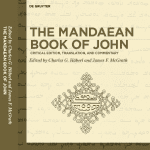In recognition of open education week, I want to highlight the way that not only I nor even just my faculty colleagues at Butler University but our institution as a whole is taking steps to address the issue of the rising costs of textbooks. While tuition and room and board present significant financial challenges to students who attend university, there is only so much room for adjustment there. When it comes to textbooks, however, there are things that individual faculty can do to make a difference. “Open Educational Resources” (OERs) sounds like something new. But as I prepared for a presentation on this topic I realized that most of us who passed through our major educational experience some decades ago have almost without exception experienced an OER. When a professor gave you a printed (or mimeographed!) copy of lecture notes, that was an OER. While many of us will want to ultimately develop a full-fledged open textbook, that isn’t essential and certainly doesn’t have to be the first step.
I realized when I geared up to once again teach a course in the Global and Historical Studies part of our core curriculum at Butler that the GHS reader is in fact the most expensive textbook for the course. It costs around $100 and contains mostly ancient texts, with even the most recent still tending to be older and historical. I was determined not to have to impose this burden on students going forward, and so this semester I ditched the reader and sought to provide access to the texts – excerpts from the Analects of Confucius, Mencius, Chuang Tzu, Hsun Tzu and others, selected Hadith, and other such things making up the biggest part of it – by using online sources wherever possible, and placing things we have legal access to through our university library on Canvas where the former option proved impossible. I created a blog to start the process of gathering those materials in one place for my own convenience as well as that of students.
I know that many of my colleagues continue to assume that, if a student shows indications of not having done the reading for a class, they are lazy or don’t care about learning. The truth is that in a significant number of instances the reason may be financial. Many students do not buy one or more textbooks, or hold off on doing so, because of the cost. One can hardly blame them when some faculty require an expensive purchase and use little of the book. OERs, as it happens, also allow that issue to be addressed. While students might not complain about selective use of a textbook or readings when those things are provided free, how much better it is to provide the students with a set of readings, in whatever digital (and potentially printable) form, that is precisely what you plan to use, because you either assembled the readings yourself, or used someone else’s open textbook and were permitted by the Creative Commons license to mix and match to make your own derivative work?
During this Open Education Week, if you are a professor, why not explore what you can do to make access to education more equitable in your own classes.
https://tophat.com/teaching-resources/infographics/average-cost-of-textbooks-infographic/
And here’s another infographic about the skyrocketing cost of textbooks.













